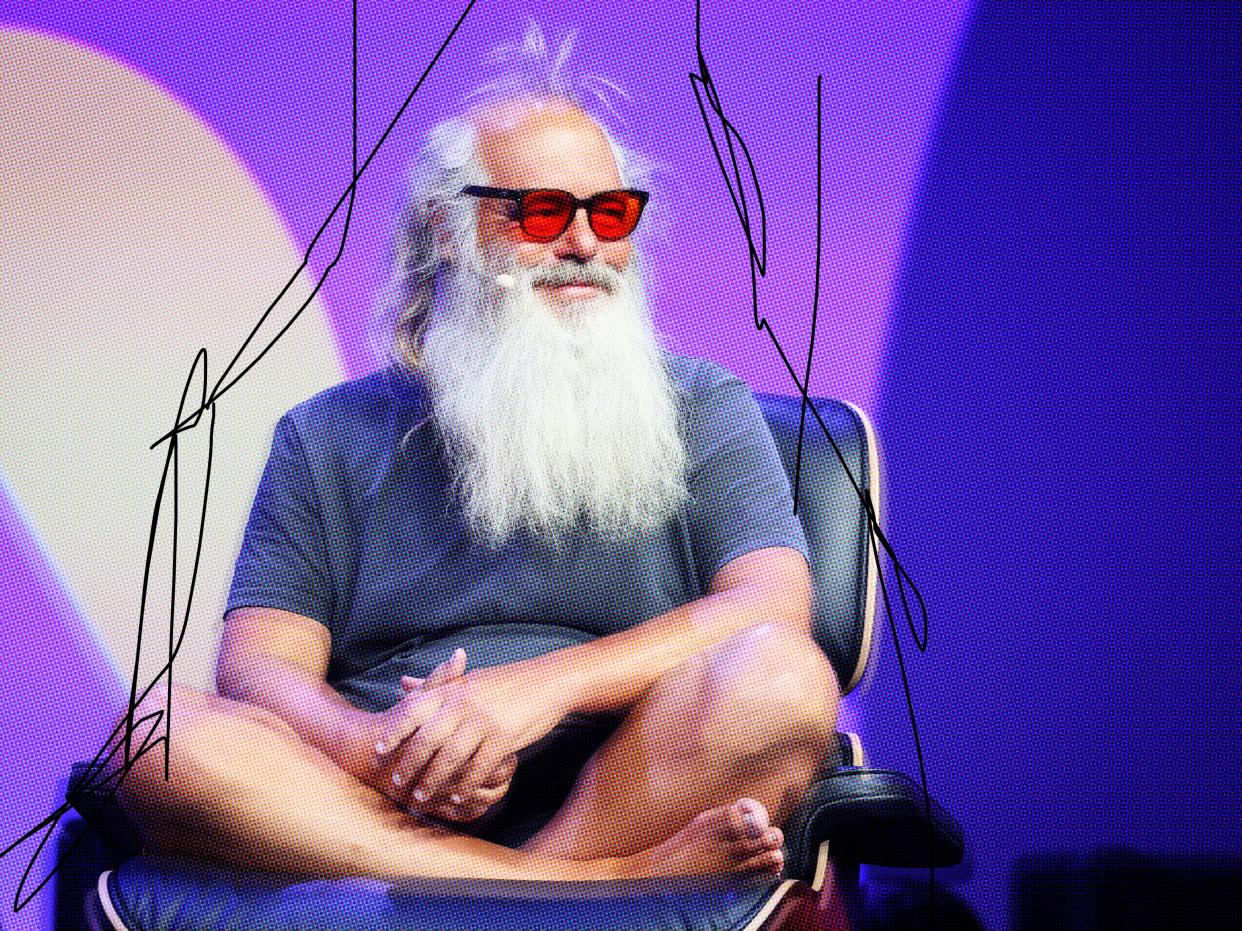Do We Really Need More ‘Creators’?

This is an edition of the newsletter Pulling Weeds With Chris Black, in which the columnist weighs in on hot topics in culture. Sign up here to get it in your inbox every Thursday.
Rick Rubin, a name that resonates with music enthusiasts and casual fans alike, is one of our most renowned producers. His contributions to the industry are immeasurable, spanning genres and decades, from the Beastie Boys and Run-DMC to Tom Petty and Neil Young to Lana Del Rey and Lil Uzi Vert. Artists speak in hushed tones about Shangri-La, his Zen-minimalist temple of a studio in Malibu. His influence has even transcended music; his lotus-positioned image graced a Supreme T-shirt in 2021. These achievements have woven a mythic lore around him, portraying him as a Buddha-like genius who knows how to extract the best from our favorite artists.
But this is a cautionary tale. Rubin has begun to tarnish his legacy by simply doing too much. I am unsure if the blame falls entirely on the bearded vibe master, though. The pressure for everyone, regardless of age, to constantly produce content and be part of the conversation has infected even the older established generation. In a clip from a 60 Minutes interview that went viral last year, Rubin is chatting with Anderson Cooper (after asking him to meditate for two minutes) and tells Cooper he doesn’t play instruments or know how to use a mixing board. The pull quote was, “I have no technical ability, and I know nothing about music.”
The world at large went wild. Rubin’s statement spawned memes and dominated online discussion for days, even though this was hardly the first time Rubin’s talked this way about his work. As long as he’s pulling quality work from an artist, I don’t need Rubin to adjust his own faders or pinch-hit on guitar. But the conversation sheds light on a different issue. Rubin was talking to Cooper as promotion for his 2023 book The Creative Act: A Way of Being, a collection of aphorisms and anecdotes designed to help readers cultivate and nurture their creative selves. Which is fine. Why shouldn’t everyone have access to an over-the-counter version of the same insights Rubin offers to high-end collaborators like the Red Hot Chili Peppers? But this book has become the ultimate signifier. It can be seen on the corporate desks of finance guys and project coordinators wanting to appear creative to their friends and coworkers. You see people reading it on the subway. It is the gift du jour. TikTok creators have it proudly displayed on their coffee tables. Its beige cover looks excellent next to a Byredo candle.
But is creativity for everyone? Is it something that can be learned? I am not sure, but I am sure that everyone doesn’t need to be creative. We have enough creative directors and photographers to last us a lifetime. The memes tell us we need more electricians and less “creators.” What Rubin has done has added a faux-intellectual sheen to the concept and given people a bible to follow. “No matter what tools you use to create,” Rubin writes in the book's introduction, “the true instrument is you.” How can anyone take that kind of babble seriously? For many people I know, the book has become a joke. Seeing it on someone’s perfectly styled end table just says everything you need to know.
I guess I am “creative” for a living, so I am technically part of the problem. But I have always been jealous of people who are good with numbers and spreadsheets. It is a tangible and viable skill. Doctors, lawyers, accountants, and plumbers are all admirable professions. But because of social media and idea peddlers like breathwork-loving super producer Rick Rubin, young people who just want to film themselves getting dressed and drinking out of Stanley mugs can think of themselves as “creatives.” Meanwhile, there is no shame in being an Excel wizard or a physician's assistant. I love what I do, but it is also a product of decisions I made when I was young and impressionable, long before the influence of social media and the internet. The guy who made that excellent Johnny Cash record who walks around his estate all day is an anomaly, not the norm. Not everyone is meant to be creative, and that is okay. We should all be proud of what we do. Constantly striving for something that might not come naturally seems like a waste of time.
Originally Appeared on GQ


